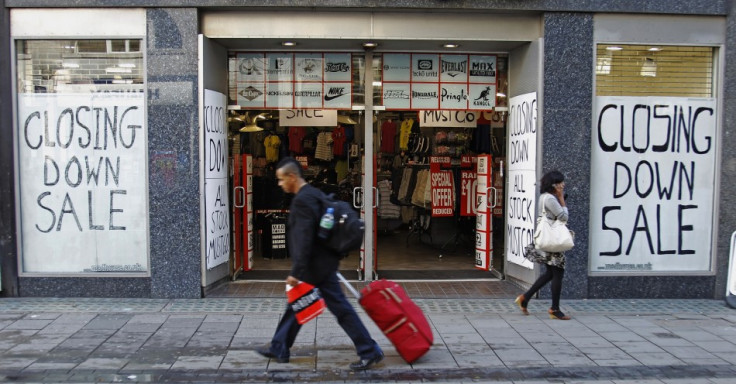No London 2012 Olympics Boost for Retail Sales: BRC

Britain's high street misery is continuing with retail data showing the worst sales growth this year during the London 2012 Olympic Games and almost one in every seven shops vacant.
The retail sector has been hurt by weak consumer demand as Britons wrestle with wage stagnation, a period of high inflation, a domestic recession as well as global economic crisis looming overhead, and job fears.
Like-for-like sales in August dropped by 0.4 percent, reported the British Retail Consortium (BRC), while the shop vacancy rate on high streets, compiled by the Local Data Company (LDC), hit 14.6 percent, its highest since June 2008.
"It's clear people were absorbed by the magnificent Olympics and had little interest in shopping, especially for major items," said Stephen Robertson, director general of the BRC.
"Usually-reliable online sales suffered, putting in the worst sales growth since we started the measure four years ago.
"Some retailers told us online activity was particularly thin in the evenings. If people weren't watching television they were more likely to be following the sport on PCs and mobile devices than shopping."
Food sales were lifted by the Olympics, but any improving performance was offset by a drop in footfall on London's normally bustling shopping districts.
Shop vacancies increased in every region except London in the year to June.
"Normal service is unlikely to be resumed any time soon as far as retailers are concerned," said the LDC.
"For the high street, and especially for secondary shopping centres, it is clear that the current high levels of vacancy are likely to remain."
Ahead of London 2012 the government and business groups were urging British firms to "take the opportunity" they argued the Games presented, but the figures suggest there was no uplift to take advantage of.
The UK plunged deeper into recession in the second quarter of the year with a -0.5 percent contraction.
Inflation rose in July to 2.6 percent as wages grew by just 1.8 percent.
"The one tangible impact of the Olympics is the effect on confidence," said Neil Saunders, managing director of retail analyst Conlumino.
"As our own data for August shows, the inspiration of the games had a slight positive impact on consumer sentiment. However, even this needs to be placed in context.
"The increase was far from transformative: it merely made a negative situation a bit less negative; as great as the Games were they did not have to the power to dispel the negative headwinds that continue to act against the economy and impact on the consumer."
Improving weather forecasts for the coming month present another worry for retailers.
"Looking ahead to September, the better weather forecast for the early part of the month could further damage retail sales as it deters shoppers from visiting high streets and from buying heavier clothing ranges which are now in store," Saunders said.
"Although we expect a broad improvement compared to August, we do not believe September will be particularly stunning in terms of retail growth."
© Copyright IBTimes 2024. All rights reserved.






